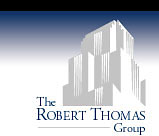|
Which of my leases or facilities should be audited?
We advise that MOST leases and facilities should be audited annually, especially if they have expense pass-throughs as defined in the lease.
Facilities or locations where lease audits have the highest potential for significant savings to the tenant are generally categorized by one or more of the following characteristics:
|
• |
|
The location is comprised of one or more large premises, usually greater than 20,000 square feet |
|
• |
|
Facilities or buildings recently or soon to be involved in a change of ownership and/or a change of property management |
|
• |
|
Locations where real estate taxes have changed significantly |
|
• |
|
Locations where utility rates have fluctuated significantly in recent years, such as in the western part of the United States |
|
• |
|
Facilities which have experienced significant changes in occupancy rates. If many of your neighboring tenants are moving in and/or out of the building in a short period of time, there is a higher risk that more costs will be borne by you, perhaps inappropriately |
|
• |
|
Buildings which are part of a larger complex where operating expenses are pooled, or allocated amongst all the entities within the project |
|
• |
|
Newly-constructed buildings or those undergoing significant renovation |
Lease agreements where lease audits have the highest potential for significant savings to the tenant are generally categorized by one or more of the following characteristics:
|
• |
|
The tenant is responsible for paying a portion of the operating expenses and/or Real Estate taxes |
|
• |
|
The lease is for a longer term (such as more than three years) where problems may continue or compound over time |
|
• |
|
The lease has a Base Year Expense Stop provision or is a "Base Year Lease" |
|
• |
|
The lease has an "occupancy gross-up" provision or a "full real estate tax assessment" provision, especially if the building has vacancies |
|
• |
|
The lease is complex, with numerous variables such as tenant improvement allowances, abatements or free months, CPI increases, porter's wage increases, variable expense stops, or special provisions or other exclusions. |
|
 |

 |
 |



 Web Site designed by Circa Design Company. Site managed by EasySite Manager.
Web Site designed by Circa Design Company. Site managed by EasySite Manager.

